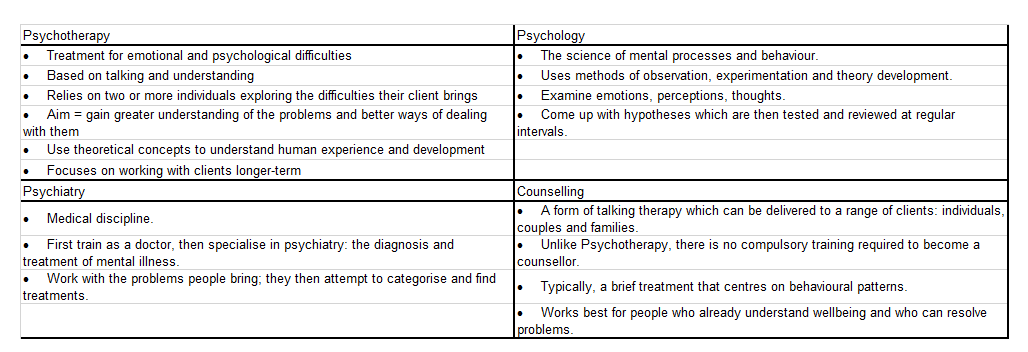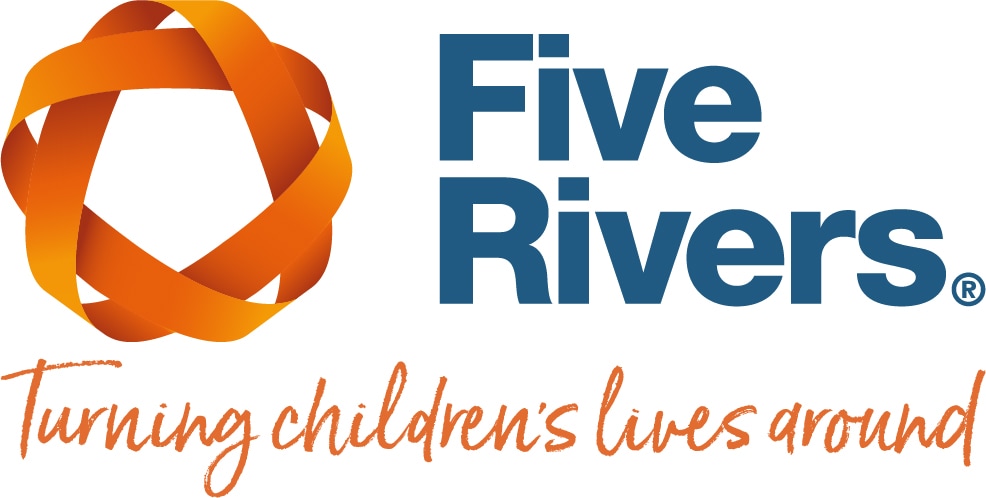National Psychotherapy Day: An Insight into Psychotherapy
Written by Katharine Anderson

What is Psychotherapy?
Psychotherapy does not describe one type of therapy, rather, it consists of multiple branches of approaches and methods to support sad, angry, painful or confusing thoughts and feelings. It is predominantly a talking therapy, which could take place on a one-to-one basis, or perhaps in a session with family members or within a small group.
In Psychotherapy, we understand the importance of two areas:
- Client and extra-therapeutic factors, g. personal processing ability, social support etc
- Therapeutic relationship g. empathy, warmth, encouragement of risk-taking
Psychotherapy is not just accessible for adults; it is appropriate and beneficial for children and adolescents too. Whereas an adult will often decide to engage in therapy, a child is more likely to be referred either by a parent, a teacher or by services supporting the young person.
For children, it can be more difficult to talk through past experiences. Psychotherapy can call upon creative means to explore feelings and thoughts. Different art forms can be used to encourage therapeutic communication, such as sculpture and clay, dance and drama. These art forms can explore a child’s internal world and experiences without asking them directly to discuss their past, which for children can be distressing or even impossible. Psychotherapy can provide a creative means of working through emotional pain in a safe, consistent environment.
How does Psychotherapy differ from other professions?
There can sometimes be confusion around how Psychotherapy differs from other Psychology-related professions. Psychotherapy has links with Psychology, Psychiatry and Counselling, but each of these professions are different from one another. Summarised below is a brief description of each role:

NB: In the UK, anyone can use the title counsellor or psychotherapist. At Five Rivers, we only employ psychotherapists who meet the UKCP (UK Council for Psychotherapy) basis for registration.
Stigmas and misconceptions surrounding Psychotherapy
‘Keep a stiff upper lip’, “Get on with it”, “Man up”. How often have you heard those phrases? For years society was encouraged to repress emotion, to carry on when the going got tough, to “bite the bullet”. Expressing any form of emotion could have been perceived as “weak”. Thankfully, cultures are becoming more open to showing feelings and sharing upsets, with mental and emotional health being held more commonly in the forefront of people’s minds. However, these toxic phrases still sadly exist.
A common misconception is that therapy is only beneficial and necessary for those with identified mental health difficulties. In reality, most people who access therapy do not have a serious mental health disorder. Instead, they may have experienced a change in their life which has resulted in difficulty. They may find it challenging to cope or may feel lost and distressed. The event(s) experienced may be affecting their wellbeing and as a result, they may not feel able to function as they normally do. This can have a knock-on effect on other aspects of a person’s life if they do not have space to think about and reflect upon current stressors and how to work with or resolve them, rather than bury or avoid them. Research has found those who receive therapy achieve much better outcomes than they would have had they not received psychotherapy (Lambert & Ogles, 2004; Wampold, 2001, 2007).
Therapy can be seen as a means of improving emotional resilience or ‘emotional fitness’. If you wished to change your body, whether that be for health reasons or otherwise, you may seek guidance from a PT. You would pay a PT to help you reach your fitness-related goals. Accessing therapy could act in the same way; you are investing in your emotional health by giving yourself a safe, consistent space to access your thoughts, feelings and work through any grievances that arise.
How children access Psychotherapy at Five Rivers
The children who come into care at Five Rivers have normally experienced a high level of trauma; in fact, 89% of the children currently in Five Rivers care have experienced five or more adverse childhood experiences (ACE’s). ACE’s can make the world a scary, confusing and upsetting place for a child or young person. Children learn from their caregivers about their own sense of self and worth, as well as how to perceive others and the wider world. This makes up their internal working model.
A child also learns how to behave and act around others based on what they witness, are taught, and what they experience. This can mean that children may develop behaviours which are unusual or inappropriate. This is not their fault, for they do not know any differently.
At Five Rivers, the children who come into care in Residential often have an integrated package of care, meaning Assessment and Therapy support is provided. A qualified clinician will work with the child through a phased treatment model. Simply put, the clinician will minimise the risk of working too quickly with the child and will respond to their needs appropriately. Access to clinical support follows the below pattern:
- Phase 1: help the young person to understand their feelings, support them to manage their responses to stressors and help them to develop a sense of safety and healthy coping skills.
- Phase 2: help the young person to modify and process their memories of their traumatic or confusing life events.
- Phase 3: help the young person to go beyond their actual experiences of trauma and address other life issues they may be experiencing, g. educational or social difficulties.
Phase 1 is repeated throughout the child’s therapeutic journey.
Psychotherapy is accessible for children to ensure they have the support they need to carry on down a healthy, happy, developmental path. The relationship between the child and their therapist is safe, reliable and consistent. The therapist aims to provide a space for the child where they are able to work through their experiences at a pace which works for them. Getting the child to come into a room with a therapist may often be the first successful step. The length of a time a child engages for may be short at first. The therapist may choose to participate in games with the child in their initial sessions, to build rapport and stabilise the relationship. Psychotherapy is not a quick fix, rather it is a journey to empowerment and safety.
“You would not expect a traumatised client to face their darkest fears, without first having developed a capacity to manage the effect associated with these memories and a safe therapeutic relationship to help guide to a successful outcome” – Richard Cross.
